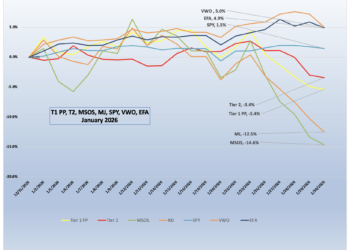Pennsylvania Republican senators firmly oppose state-run dispensaries, and they are not the first lawmakers to reject the idea.
The latest attempt to legalize adult-use in Pennsylvania hit a wall this week. The Republican-controlled Senate Committee on Law & Justice shut down the latest Democratic attempt to legalize adult use, 7-3, during a hearing on May 13.
State Rep. Rick Krajewski (D) introduced HB 1200 on May 4, and the House passed it 102-101 on May 7. The bill found narrow partisan support from House Democrats, before it landed in the Senate five days later. The largest point of contention was not legalizing adult use itself, but government-run dispensaries.
“I really expected a little bit of back and forth discussions and work on these bills if we are going to truly put a product on the governor’s desk,” said Sen. Dan Laughlin. “I’ve made it pretty crystal clear that I do not believe that the state store model that is included in House Bill 1200 has a path through the Senate, let alone through this committee.”
Republicans on the committee were unified in opposing the bill, citing concerns over conflicts with the federal government for employees and issues with banking and how the state treasury would be affected if it started collecting proceeds from the sale of cannabis.
Laughlin also worried that launching the retail market would require hundreds of millions of tax dollars before any proceeds could return to the state.
“We would start out roughly $250-$300 million in the hole before we even take a dollar through sales. That just does not seem like the right path to go on,” he said. “The private market is ready, willing and able to pick up when we pass cannabis and get to work, and not cost the state a penny, and actually generate revenue right out of the gate.”
The hearing lasted just over 15 minutes before the committee swiftly voted down the bill.
Medical cannabis operators raised CSA concerns
Weeks before the hearing, the Pennsylvania Cannabis Coalition, composed of existing medical market operators, urged the legislature to avoid implementing state-run dispensaries when it released a memo it commissioned from Kleinbard LLC.
The March 19 memo raised concerns that allowing the state’s Liquor Control Board (LCB) to become a cannabis operator could run afoul of the U.S. Controlled Substances Act (CSA).
“Any framework carving out an LCB role is unlikely to pass muster under precepts of federal preemption because, unlike many de-criminalization statutes which merely refuse to take state action in furtherance of the CSA, an LCB role requires state action that plainly violates the CSA,” said the five-page memo.
Sen. Laughlin, who chairs the Committee on Law & Justice, appeared to agree with PCC.
“The state acting as a buyer will limit consumer choice and drive consumers out of state to neighboring legal markets like Maryland, New Jersey, New York and Ohio,” Laughlin said during the hearing. “The state will outsource significant revenue similar to the dynamic experience that we now have with our alcohol system.”
Liquor can only be purchased in Pennsylvania from a state-operated shop, or directly from a distillery. New Hampshire, Alabama, Idaho, North Carolina, Utah, Virginia and Washington also control the sale of alcohol to some extent.
Other states considered selling cannabis
Pennsylvania is not the first state to consider government-operated cannabis stores.
Utah’s initial medical cannabis law, which passed in 2018, called for county departments of health to distribute cannabis along with seven privately owned dispensaries. The state legislature passed an additional bill the following year, at the urging of the county attorney, which left all of the dispensing to private retailers.
New Hampshire, which sells liquor through state-run retail stores, has also considered a state-run model for adult-use. The Granite State currently has legal medical cannabis, which is sold through dispensaries owned and operated by one of three private companies. Over the last few years, the legislature has tried numerous times to legalize adult-use cannabis, and almost every instance has included state-run dispensaries.
Those efforts usually failed in the state Senate over disagreement on the larger question of whether adult use should be legal and not how a legal market might operate.
Maine, which has had a legal adult-use market since 2020, also considered state-run dispensaries in the early days of its medical cannabis program in 2001. Before the plan was abandoned, lawmakers considered allowing the state to direct distribution of cannabis that it either grew itself or obtained through drug seizures by the state police, according to Robert Mikos, who published an analysis on how states grapple with legal cannabis in a 2009 issue of the Vanderbilt Law Review.
Mikos, who sourced his information from a letter between a law enforcement official and two state legislators, said officials were worried the state could risk losing $19 million in federal grants and that employees could be held criminally liable if the state operated its own cultivation sites and dispensaries.












